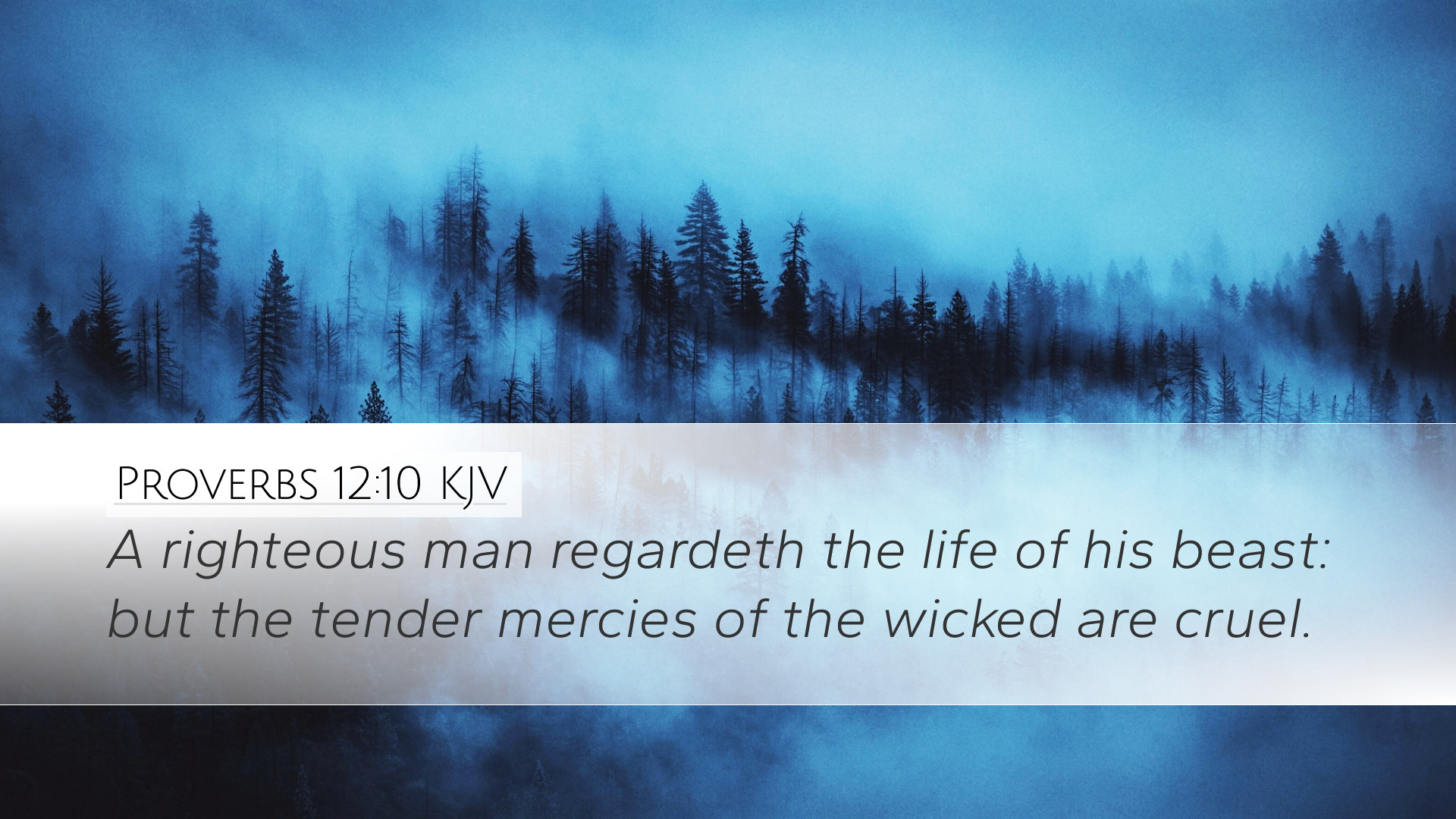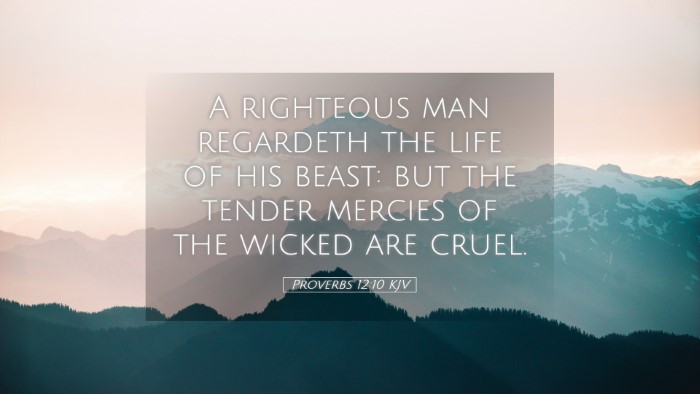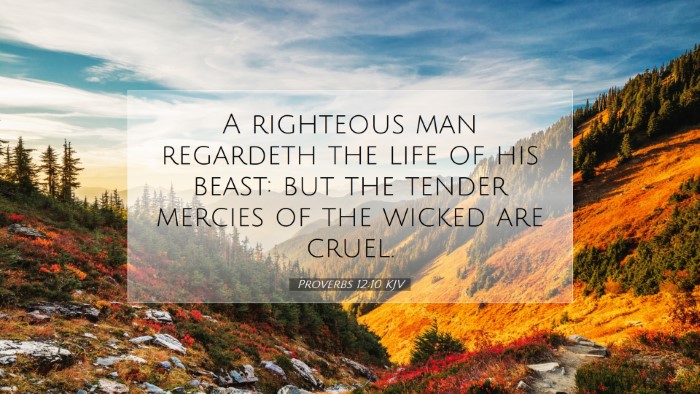Commentary on Proverbs 12:10
Verse Text: "A righteous man regards the life of his animal, but the tender mercies of the wicked are cruel."
Introduction
The verse from Proverbs 12:10 serves as a concise reflection on the ethical framework within which the righteous operate, particularly concerning the treatment of animals. This passage underlines the moral obligation that those who are righteous have towards all living beings, contrasting it sharply with the character of the wicked. The insights drawn from public domain commentaries shed light on the significance of these statements and their broader implications for understanding wisdom in life.
Analysis of Key Themes
The Nature of the Righteous
The term "righteous man" denotes an individual characterized by integrity and moral uprightness. Matthew Henry emphasizes that the righteous person shows consideration and compassion not just towards fellow humans but extends this regard to animals. This perspective illustrates a holistic ethic which values life in all its forms.
Regard for Animals
The phrase "regards the life of his animal" points to the righteous man's responsibility to protect and care for the creatures entrusted to him. Albert Barnes notes that this concern reflects a principle of stewardship, where God’s creation is treated with diligence. The righteous understand that animals, as part of God's creation, deserve humane treatment, thus forming a part of their ethical behavior.
Contrasting the Wicked
The verse draws a stark distinction between the righteous and the wicked. The "tender mercies of the wicked" are said to be cruel, indicating that even their kindness is tainted by selfish motives. Adam Clarke elaborates that while the wicked may display acts of care, their underlying intentions often betray a fundamental lack of genuine compassion. Such mercies can ultimately lead to harm rather than true benefit.
Theological Implications
This verse opens a discussion on the nature of true righteousness in a theological sense. It highlights that righteousness is not just about faithfulness to God and His commandments but also involves practical ethics that impact every aspect of life. Every action speaks to the character of an individual—how they relate to both human beings and animals demonstrates their understanding of divine principles.
Practical Applications
For pastors, students, and theologians, this passage serves as a reminder of the need for compassionate stewardship. Practical applications include:
- Encouragement of Compassionate Leadership: Encouraging leaders in faith communities to advocate for the responsible treatment of animals, recognizing God's creation.
- Educating Congregations: Hosting discussions or sermons highlighting the ethical treatment of animals as part of Christian stewardship.
- Developing a Holistic Ministry: Integrating care for the environment and animals into church ministries, fostering a biblical understanding of creation care.
Conclusion
Proverbs 12:10 encapsulates critical insights into the nature of righteousness and the moral responsibilities that come with it. The righteous man’s regard for his animal reflects a broader commitment to justice and compassion. The contrasts drawn with wickedness challenge all believers to examine their own lives and the ways they enact their faith in consideration of God’s creation. The teachings from the commentaries not only enrich our understanding of this passage but also encourage a lifestyle where the principles of righteousness permeate every interaction—towards fellow humans and all living beings.


